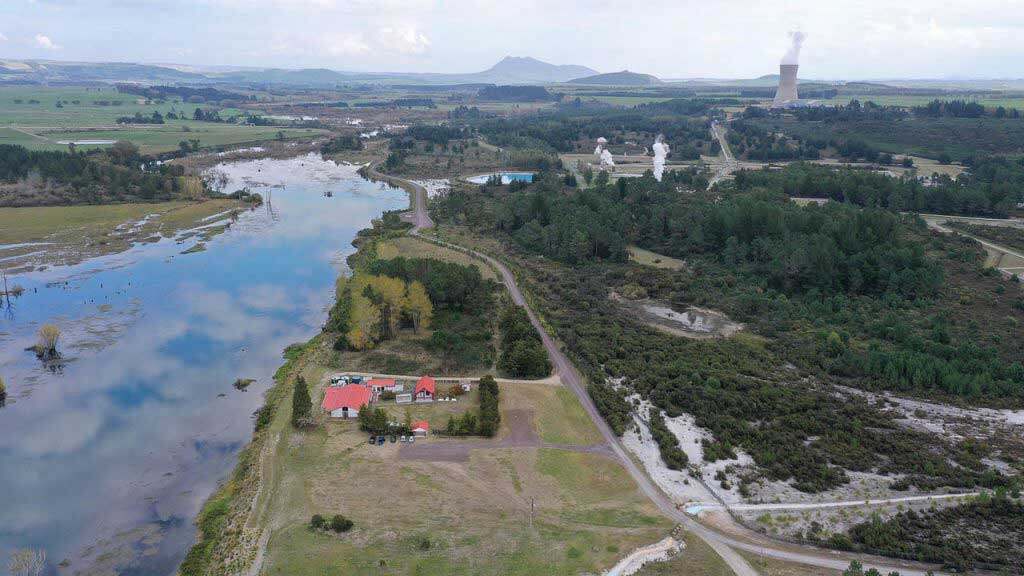New research aims to bolster marae resilience against flooding, landslides and other natural hazards.


Hundreds of marae around the country are exposed to natural hazards like flooding and landslides, according to new research from Waipapa Taumata Rau, the University of Auckland.
Engineering PhD student Haukapuanui Vercoe (Te Arawa, Tūwharetoa, Te Āti Haunui-a-Pāpārangi, Ngāti Pāhauwera, Ngāti Raukawa, Ngāi Tahu) conducted a geospatial hazard analysis of 869 marae nationwide to assess how they could be impacted by natural hazards.
His findings show that one in three marae are at risk of flooding, one in three are situated in landslide-prone areas, one in five are in tsunami evacuation zones and two in five are susceptible to liquefaction in the event of an earthquake.
“The findings are alarming. Climate change and natural hazards pose a significant threat to our marae in Aotearoa.
“Climate change is no longer a looming threat. It is upon us, and we are seeing the effects of it now,” says Haukapuanui.
Marae have played a pivotal role in providing support to the community during natural disaster emergencies, such as the Christchurch and Kaikōura earthquakes, Edgecumbe floods and Cyclone Gabrielle.
But resourcing is a critical challenge for marae, given the pressing need for repairing or upgrading infrastructure and buildings. Many depend on koha, grants or event bookings to sustain operational expenses.
“Marae often receive little to no acknowledgement for their significant contribution to civil defence and emergency response, as well as recovery and relief efforts. Although marae and hapū will continue to support the wider community from the goodness of their hearts, marae should not bear the cost and must be resourced accordingly.”
-Haukapuanui Vercoe, PhD student, Faculty of Engineering


“Marae often receive little to no acknowledgement for their significant contribution to civil defence and emergency response, as well as recovery and relief efforts. Although marae and hapū will continue to support the wider community from the goodness of their hearts, marae should not bear the cost and must be resourced accordingly.
“Collaborative efforts and support from central and local government would be a step in the right direction to ensure adequate funding and resources are accessible for all marae.”
Both Haukapuanui and his brother Sonny Vercoe are doctoral students in the Faculty of Engineering.
Haukapuanui’s research looks at which hazards marae are prone to and might want to consider in their emergency preparedness plans, while Sonny is developing provisions for structural engineers to carry out detailed seismic assessments of wharenui.
They’ve joined forces with Te Arawa Lakes Trust, a local iwi organisation in their hometown of Rotorua. Led by their aunty Mere Vercoe, the project aims to enhance marae resilience by bridging the gap between academic research, community needs and government agencies like Civil Defence.
“We are not coming through the front door as strangers. We’re coming through the back door as whānau,” says Haukapuanui.
Te Arawa Lakes Trust recommends several strategies for mitigating risk, including developing emergency plans for different disaster scenarios, providing adequate training and resources, and relocating building structures where necessary.
Haukapuanui and Sonny’s research is deeply rooted in Māori cultural values and community engagement. They’ve received positive feedback from the community in Te Arawa, who have welcomed the opportunity to develop emergency preparedness plans.
Their work also underscores a commitment to giving back to the communities that shaped them.
“What is most meaningful to us is putting the engineering and research skills to use to help whānau, hapū, iwi and marae who played a huge role in our upbringing,” says Haukapuanui.
He used geographic information system (GIS) mapping to identify the marae that were at risk to natural hazards.
“Although no model will ever be perfect, it provides a platform to start the conversation. With good information, marae can make more informed decisions.”
Despite the concerning figures, Haukapuanui says resilience is ingrained within Māori communities.
“The art of resilience through rapid response, collaboration and leadership is an innate skill among our people.”







































